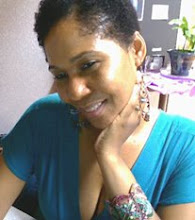
One week after the tragedy at Virginia Tech, the nation still struggles to make sense of the senseless. But even grief is filtered through the prism of race.
Yesterday in church, the pastor offered words of solace in this time of mourning, and urged his parishioners to pray for the families of the 32 victims. Although he informed his predominantly black congregation that Cho Seung-Hui’s race should have been insignificant, the preacher expressed relief that the gunman who committed the worst mass shooting in U.S. history wasn’t “one of us.”
Asian-Americans have not been able to breathe so easily. Last Monday, when early reports speculated that the killer was a South Korean immigrant, the Asian American Journalists Association (AAJA) rushed to do damage control. Fearing backlash, AAJA implored the media to avoid using racial identifiers, and issued a press release stating, “There is no evidence at this early point that the race or ethnicity of the suspected gunman has anything to do with the incident, and to include such mention serves only to unfairly portray an entire people.”
As I read articles on the VTech tragedy by writers with Asian surnames, surprise, disappointment and fear permeate their commentaries. It's as if Cho's crime brought down the race somehow. Chinese journalist Lisa Ling, who covered the story for Oprah, prefaced her report by saying, “As an Asian American, my heart sunk,” and she worried about reprisals toward anyone with Asian features.
African-Americans reacted similarly upon hearing that the snipers who terrorized D.C. a few years ago were black. As people of color, bizarre violence puzzles us, and is viewed as the domain of crazy white men. Give us a back alley knife fight or a garden-variety driveby, but we don’t do mass murder. Or if, perchance, we become trigger-happy, there is always a rational excuse. When Jamaican-born Colin Ferguson gunned down six people on a Long Island train over a decade ago, his defense was that “black rage” drove him to temporary insanity. Although African-Americans condemned Ferguson’s cold-blooded spree, many still gave him a pass. His killings didn’t qualify as mass murder, per se, because The Man made him do it.
Minorities often feel personally responsible for the lunacy of fellow minorities. It’s as if a random act of violence taints our racial scorecard. But for the majority culture, there doesn't appear to be the same sense of guilt and shame. When the identities of Columbine killers Dylan Klebold and Eric Harris were released, I doubt white men went around wringing their hands, saying, “My people, my people.” On a deeper level, “white madness” has long been a source of consolation in communities of color. In the face of our disenfranchisement, it serves as an equalizer. Let white folks have their money, power and prestige--at least people of color don’t go around shooting up school yards.
Until now.
 Although most Asians, like most blacks, are decent, hard-working folks, it’s inevitable that they will become the butt of gallows humor and/or attempts to sully their reputation as “the model minority.” Engineering and rocket scientist stereotypes aside, the VTech massacre serves as a reminder that no culture is exempt from deviant behavior. Although Cho wasn’t “one of us,” how will blacks react if the next mass murderer is?
Although most Asians, like most blacks, are decent, hard-working folks, it’s inevitable that they will become the butt of gallows humor and/or attempts to sully their reputation as “the model minority.” Engineering and rocket scientist stereotypes aside, the VTech massacre serves as a reminder that no culture is exempt from deviant behavior. Although Cho wasn’t “one of us,” how will blacks react if the next mass murderer is?“No one deserves a tragedy,” poet Nikki Giovanni reminds us in her Hokies convocation address. This pronouncement is true not only for the victims of Cho’s rampage, but for the Asian-American community as well.


